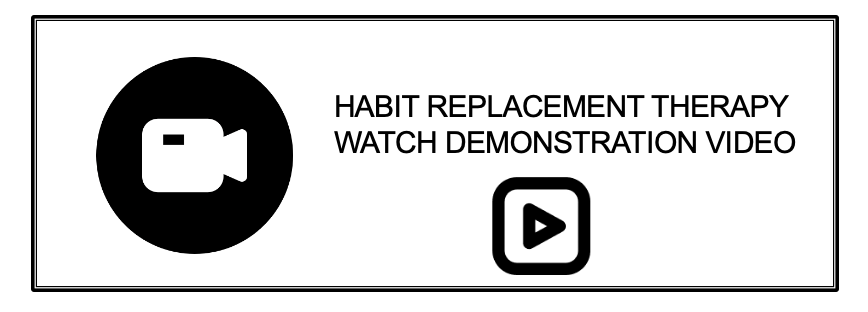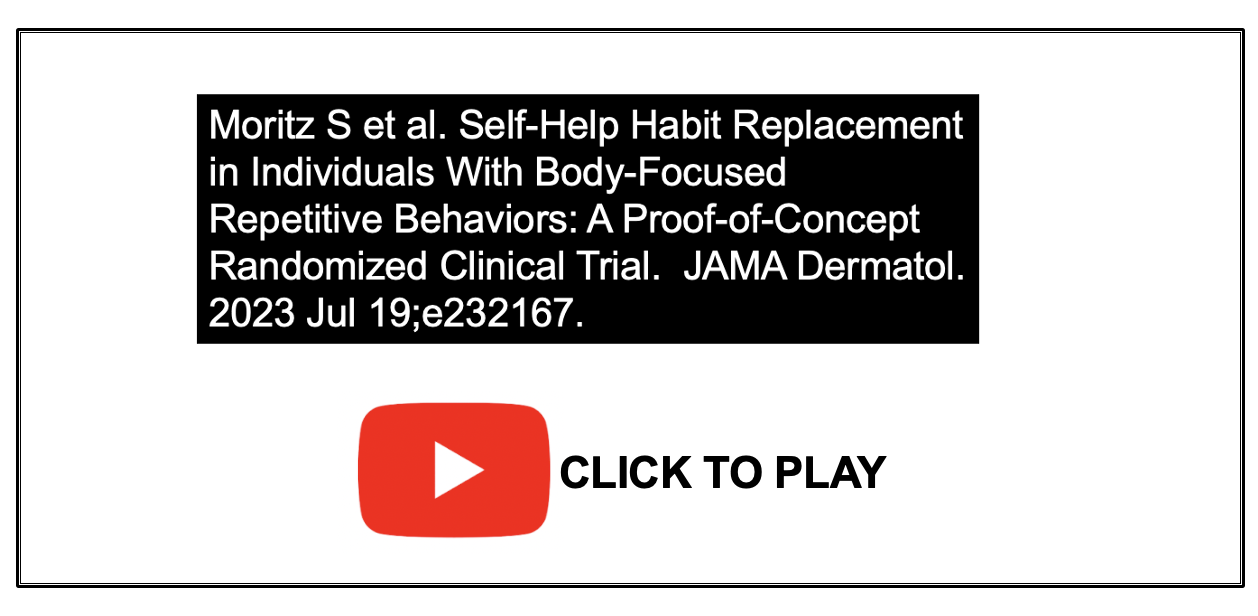A New Technique to Address Body-focused Repetitive Behaviors: Habit Replacement Therapy (HRT)
Habit Reversal Therapy Offers An Easy to Learn Option with Modest Benefit
Body-focused repetitive behaviors (BFRBs) include skin picking, trichotillomania, and lip-cheek biting. They are all characterized by the urge to manipulate some part of the body leading to visible damage.
Authors of a new study examined the benefits of a new self-help treatment technique called habit replacement (HRT). This is a technique whereby an individual learns to replace the BFRB with another repetitive behaviour that is inconspicuous, self-soothing and benign. If is a bit different than other techniques like habit reversal training as it is focused on findings a soothing replacement technique.
The authors provide a nice video to describe these circling non-harmful movements when the urge arises to pull hair, pick skin or bite nails
In this study, individuals with BFRBs (ie, skin picking, trichotillomania, nail biting, lipcheek biting) between 18 and 80 years old with no history of schizophrenia or acute suicidality were assessed online at baseline and 6 weeks later. There were 481 individuals who were recruited from social media 213 were excluded. A final sample of 268 participants were randomized ( to either habit replacement (n = 134) or the wait listing. (n=134)
These included individuals with skin picking, 68.3%; trichotillomania, 28.4%; nail biting, 36.6%; lip-cheek biting, 26.1%; other, 20.1%).
Participants in the HRT were taught via video how to perform these circling self soothing motions.
The primary outcome was the Generic BFRB Scale-45 (GBS-45),13 which captures different BFRBs. A quality of life scale (WHOQOL-BREF global quality-of-life item) and a depressive scale (Patient Health Questionnaire-9) served as a secondary outcome. The authors also administered a reporting scale to document overall improvement Clinical Global Impressions Scale (CGI).
Results
A total of 268 participants were included ( [89.9%] women; mean age, 36.8 years). 79.1% in the habit replacement group completed the final assessment and 76.1% in the control wait list completed the final assessment.
All in all habit replacement training seemed helpful. There was some improvement in quality of life and depressive scales in the HRT group. There was a greater proportion of individuals in the habit replacement group who reported “slight improvement” or “much improvement” (52.8% vs 19.6%). There was quite high satisfaction in the HRT group.
Overall, nail biting seemed to be the group that improved the most of all the BFRBs
CONCLUSION
All in all, this preliminary study showed that habit replacement is fairly easy to do and has some modest benefit. It can act as a self help strategy which the authors point out can be used while waiting for referral or for more definitive therapy. The authors point out that for some patients something like HRT coupled with other treatments that address some of the root causes that trigger the behaviour could lead to better and longer lasting results. Four out of 5 individuals would use the technique again, and even more would recommend it to a friend with similar problems.
There are some limitations of the study that the authors point out. This was largely a study of white women recruited through social media so the authors point out it’s not clear if this would or would not affect the generalizability of the findings.
REFERENCE
Steffen Moritz et al. Self-Help Habit Replacement in Individuals With Body-Focused Repetitive Behaviors: A Proof-of-Concept Randomized Clinical Trial. JAMA Dermatol. 2023 Jul 19;e232167.
This article was written by Dr. Jeff Donovan, a Canadian and US board certified dermatologist specializing exclusively in hair loss.


